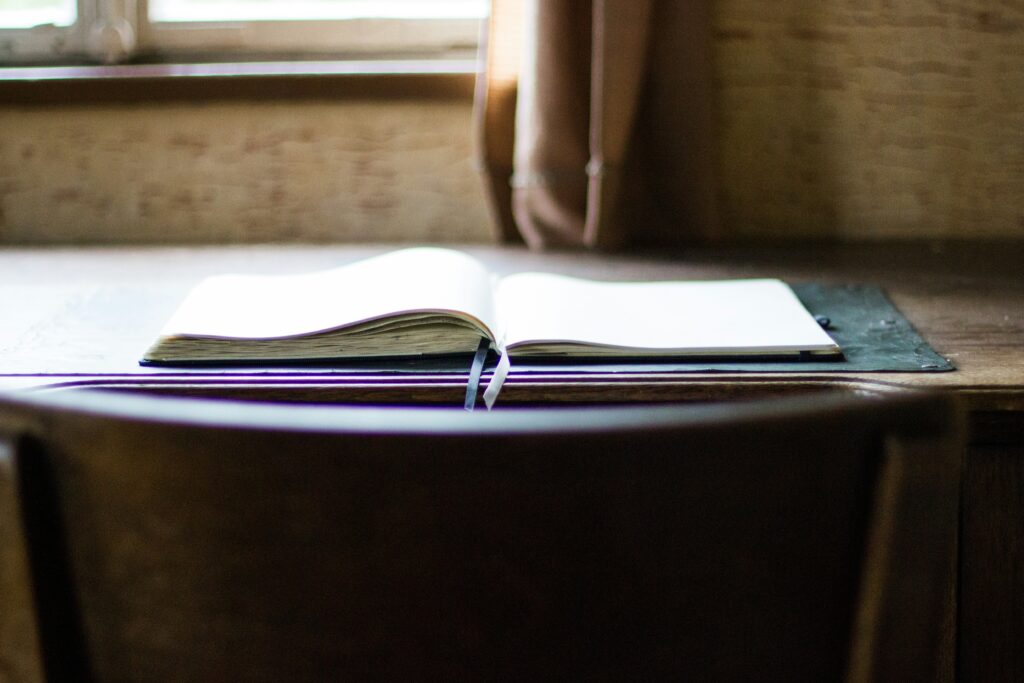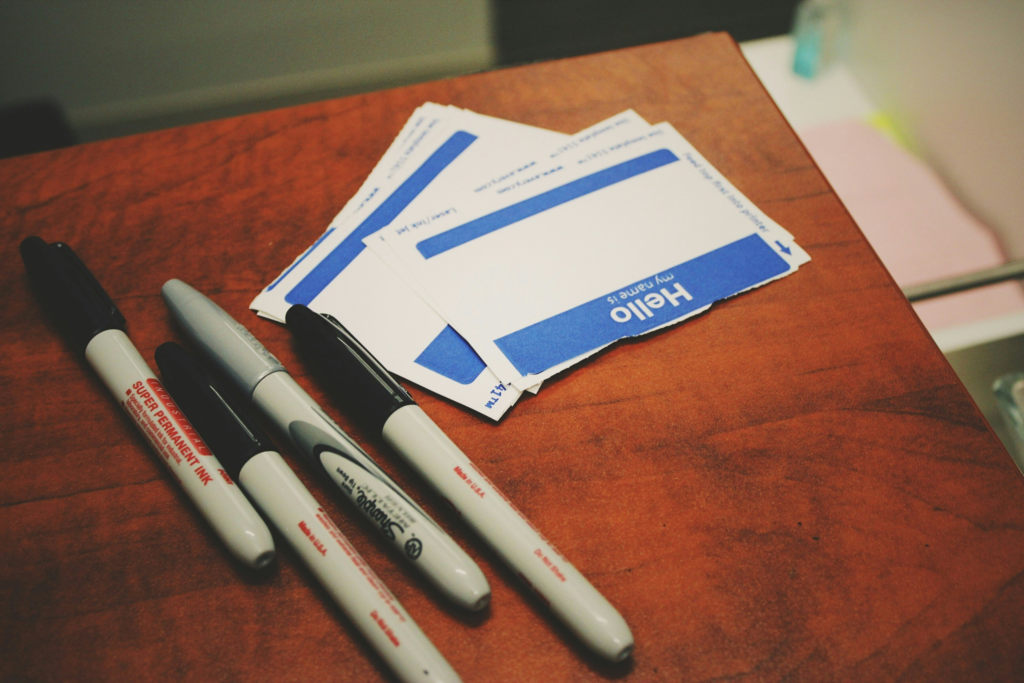Confronting Poetry and the Self: A Conversation with Danez Smith

I first encountered Danez Smith’s work in undergrad and had the privilege of seeing them perform twice while I lived in Chicago. Having originated in the spoken word scene, Smith’s performances of their work are impressive and enlightening. I will always remember the first time I heard them read, “waiting on you to die so i can be myself.” I’ve never had such a visceral reaction to a poem before, and it opened up many questions for me about what poetry can do and what risks it takes. I was honored to have the opportunity to interview Danez Smith when the Therese Kayser Lindsey Literary Series brought them to campus for both a reading and a craft talk.
Danez Smith’s work is an act of resistance. Primarily focused on their hometown of Minneapolis and Saint Paul Minnesota, the poems challenge the state and state violence and write towards community. Their new collection, Bluff, challenges the role of poets and poetry in the current political climate.
SK: One of my professors in the program, Cecily Parks, suggests that the opening poem in a collection teaches the reader how to read the collection. How did you go about choosing “anti poetica” to be the first poem and in what ways do you think it informs the reader’s interpretation of the collection?
DZ: So, the suggestion to open with “anti poetica” came from my editor. It was not my idea, but I think he was right in that the themes of the poem set up a confrontation with poetry or with the self and thinking about duty and usefulness. I was thinking about labor and the different dynamics of power that the book plays into. And so I think the first two poems with “anti poetica” and “ars america,” that comes right after that, are there to set down the bigger claims or questions that will be troubled. I think of them as a duo. I think “ars america” sets up the larger theme about blackness in America through history that the book then troubles through.
SK: You end the poem, “it doesn’t feel like a time to write” with the stanza, “it doesn’t feel like a time to write / when all my muses / are begging for their lives” (Smith 20). My question is, what is the driving force behind your writing when it feels wrong to be writing in this time of state violence and genocide?
DZ: Oh, I don’t think I’m trying to say it feels wrong to write. It’s not that writing is necessarily wrong or not useful. It’s saying I have urgency elsewhere, right? And it doesn’t feel like a time to write because we are surviving, right? Because we are fighting something, right? Indeed, that is a time to write. Both as writing as an act of thinking, but also writing as an act of archiving, or witnessing for other folks to be able to use later as a primary document. I think part of our supreme duty as poets is to offer language for what was formerly unutterable to people. It’s actually a little bit of a conundrum. It doesn’t feel like a time to write. And yet that is the exact time that you should be turning to the page. You should be cataloging, where you should remain open to language because it will be useful later. You must write in the midst of the fire to offer hope for those who find themselves in the fire later. So yeah, nothing wrong about it. The poem is just trying to pull apart the ache of writing, or the ache of being an artist, when those people who truly are your muses, who you draw stories from who you write for, are endangered by state violence, just the ways of the world, right? And so it’s not really right or wrong. I don’t think it’s useful to say this is good, and this is bad. But poems are great for holding the tension between conflicting things. I think that’s what I’m trying to do.
SK: Thank you for clarifying that. That’s helpful. I think a lot about the role of risk and poetry. What, if anything, felt risky to you in writing this collection, and what do you think about the relationship between risk and poetry?
DZ: I think there is no good art without risk. Otherwise, you’re just doing portraiture. It’s fine, but even then, that should risk something, right? I think telling the truth always requires a risk. What felt risky was maybe telling the truth about myself, about my family, about the world. But I don’t correlate risk with fear. There was never a point where I was like, oh, I’m scared to do it. That’s what the task is. And maybe taking a risk in terms of how the poems work, there’s a lot of visual work. There’s a lot of work that troubles how poetry falls on the page. I think for me, art making is so tied to fun. And I think there’s always a little bit of risk in fun, you know? I like theme parks. I like roller coasters because I like that fear that you get at the top of them. Even a lot of the games we would play as children have a little bit of panic in it, you know? Even if it’s as simple as tag, it’s kind of like a risk, the risk of getting caught is there. So I think risk leads me back to play, and I guess I’m always asking myself, how do I write the poems I don’t know how to write? How do I take a big swing? It’s not really fun to write things that you feel like you knew how to write and knew what they were going to say before you even started writing it. What the fuck for? Writing is an act of thinking and thinking is risky business. I think risk is just an inherent part of the work. Maybe my focus and the risk for this book was the risk of truth but I also think even the impetus for the book, I was really dissatisfied with art, with writing poetry, with myself. So the whole book is addressing the risk of losing my artistic spirit. And trying to rescue that. Every time you touch the page, it is a risk.
SK: Exactly. Speaking of forms, you employ a variety of nontraditional forms throughout the collection. What drew you to these forms, and how do you think these forms work with the content of the poems?
DZ: Ah. I don’t know what drew me to them. Just trying. I think that is half of writing. It’s half freestyle, half improvisation, half scaffolding, half throwing shit at the wall and seeing what sticks. I’m unprecious when it comes to the process of “this thing must look like this.” Who cares? Is it good or not? So, I think just somewhere in the process, a whim entered my mind and said, “What if this poem looked like this?” You try it out. And sometimes you try it out, and it’s like, oops that sucks, so you turn it back to how it was, and you find a new way. But sometimes it sticks. I think what attracted me to them wasn’t anything necessarily premeditated, but it was back to that same question of risk. You take the risk and there’s something exciting and satisfying once you’re within it. So, what attracted me to these forms was that I tried it and they worked or there was something about them that delighted me. I don’t want to say art making is haphazard, but it is sometimes far more unprecious than we think it is.
SK: Your previous collection, Homie, celebrates community and friendship. How did community and friendship influence the writing of this collection?
DZ: Well, community in that it’s probably my most localized work, it’s very much about my hometown in Minneapolis and St. Paul, Minnesota. I think that community was very much in my heart as I wrote those poems, as well as poems about my family and poems about my husband. There’s a lot of layers of intimacy that are in there. And I think, for me, poetry is a communal endeavor. I don’t think I would write poetry if I didn’t live amongst and love people. The act of being a public writer is also one of community. It would be easy just to write poems to keep them in my diary, but there has to be a reason why I edit and then publish and do all those other things. I think my question was, what do I want to say to people who I consider valuable? And every book kind of has a different answer to that. With this one, I was really trying to reach out to anybody who has ever felt like art lost its sharp edge for them. What it means to sort of rediscover a purpose in your work.
SK: I first read the first poem, “anti poetica” as an individual poem, and it left me with questions about the role of poetry and poets in today’s world, and what avenues toward freedom poets can take beyond their writing. Is there one action item you’d like to give to those reading this interview?
DZ: Poems are cute, art is cute, if you find yourself dissatisfied with your art, ask yourself where else you can put your energy into. I’m not trying to say art is pointless in like an anti-poetical poem, right? I think there is no movement without energy. And so even our people’s movements need the energy of art making. For me, that is good enough of a reason to make poetry because it’s going to feed the soul of somebody who’s out there doing the work. So, yeah, make good things that encourage and embolden the spirit of those who are doing the work for a world that you want to live in. And also, sometimes put the pen down and go fight alongside them.


